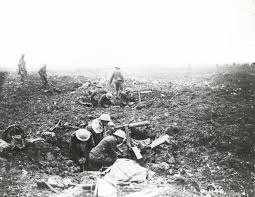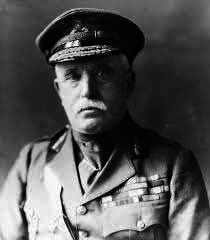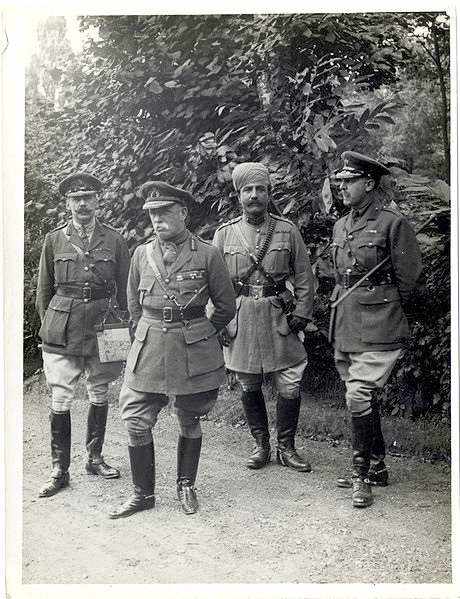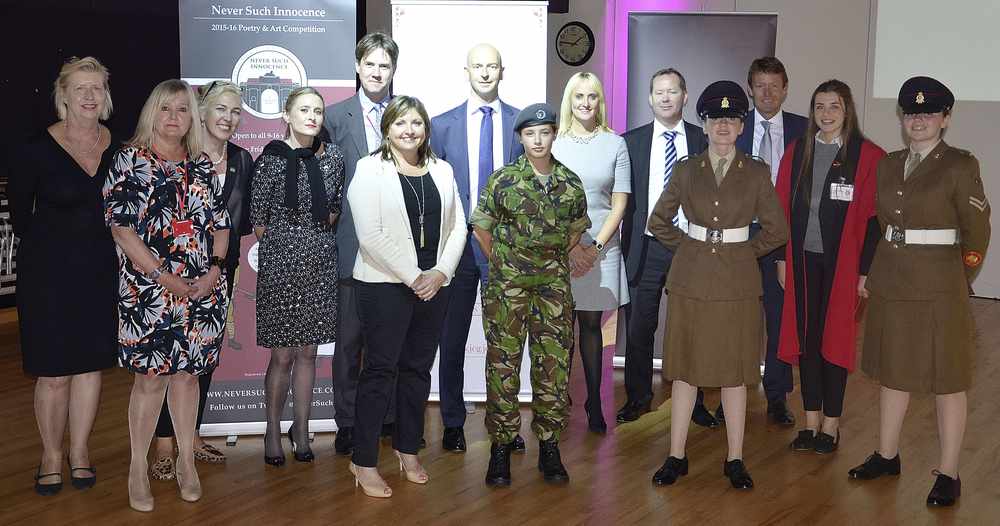You may think the First World War too distant from the lives of todays children for them to be interested not so, says Lady Lucy French, great-granddaughter of the Commander-in-Chief of the British Expeditionary Force, Sir John French, who was in the Island recently to launch a school poetry contest. Caroline Moody reports
IN the autumn of 1915 one of the major offensives of the First World War was fought at the Battle of Loos.
The two-month offensive ended in October – and in failure.
And the following month, Sir John French, Commander-in-Chief of the British Expeditionary Force, was forced to step down after a politically and militarily troubled time in charge.
He was replaced by Sir Douglas Haig – himself one of the most controversial of the war generals.
Sir John French was a national hero of the Boer War but his reputation following the First World War was, and remains, somewhat tarnished although some historians agree that he has been treated harshly.

His great-granddaughter, Lady Lucy French, was in the Island recently to launch a school art and poetry competition and she believes that ultimately opinions about Sir John’s military abilities and his part in the war may well be viewed differently in the future.

‘I think there’s a huge revisionist attitude that’s happening at the moment, during the centenary, and people are really reviewing all the generals during the Great War.
‘I think it was an unprecedented war.
‘His previous battle had been the Boer War, so it was a completely different thing altogether,’ said Lady French.
‘I think Montgomery once said of French, that basically, never be the first general in the start of an unknown war and I think that’s very, very true.
‘He had a difficult time.’
One thing that most people agree on is that he did try to protect his soldiers and was keen to avoid undue losses in the British Expeditionary Force, dubbed the Old Contemptibles.
‘That’s the great thing about him,’ said Lady French.
‘My aunt used to take the Old Contemptibles to Ypres every year and they were French’s men.
‘She told me that they used to reminisce about their war experiences and that his men loved him – and I think that’s terribly important.
‘He had a great affinity with his men.’
Lady French’s aunt, Lady Patricia Kingsbury, was a volunteer ambulance driver in the Blitz and granddaughter of Sir John French.
‘She was very keen to keep his memory alive and she gave an awful lot of his diaries and memorabilia to the Imperial War Museum, so they could be shared with the nation.
‘And I remember when I was 13 my aunt took me to Ypres and showed me the Commonwealth War Graves cemeteries.

‘That image of hundreds and hundreds of beautifully tended graves has never ever left me.’
Sir John French died in 1925 and Lady French never met him, though he obviously played a large part in the family history.
‘It’s a great shame that I didn’t know him, but I was always very aware of him and who he was and what he’d done.
‘I’ve only really been able to learn about him from my aunt and my father and through letters and books.
‘He kept copious diaries but unfortunately his writing was terrible so it is very hard to read, but I got a flavour of him.’
Unsurprisingly, the family link led to a keen interest in the war and Lady French established a First World War commemorative charity called Never Such Innocence.
One of the latest projects was the launch of a poetry and art competition in schools across the UK and resulted in her recent visit to Jersey.
- The charity Never Such Innocence takes its name from Philip Larkins poem MCMXIV, which reflects on the changes caused by the First World War.
- More than 6,000 soldiers from Jersey fought at the Battle of Loos, the Somme and Passchendaele.
- Never Such Innocence is inviting pupils aged from nine to 16 from Jersey and across the British Isles to submit poems or artwork inspired by the events of the First World War.
- Entrants can win prizes for themselves and their schools.
- The deadline is March 2016 and the plan is to have an awards ceremony in London next spring.
- There may also be a special award ceremony or exhibition in Jersey in May or June next year.
- For more information, and a free copy of the charitys resource pack, email enquiries@neversuchinnocence.com.
‘We had a fantastic launch at Jersey College for Girls and the response was brilliant and really encouraging.
‘The aim of the project is to reach right across the British Isles.
‘NSI is very specifically working with children aged nine to 16 years and I wanted children to have the opportunity to feel that they could play their part in the centenary of the Great War.
‘We’re a very multicultural society now and children, from wherever their ancestors came from, will have been directly or indirectly affected by the Great War.
‘Everybody has a part to play in the centenary.
‘It’s about getting children to take pride in the sacrifices that were made,’ she said.
‘So many people had family members involved in that war and now, more than ever I think, people generally are really interested in ancestry and finding out what their forebears have done.’
You may think that the First World War may seem a bit distant for children these days, but this isn’t what Lady French has found.
‘I talked to Martin Stephen, who I worked closely with on the project when we were setting it up, and I said I wanted to work with poetry and an art competition with children.
‘He said: “I’ve worked in education for 40 years, don’t do it.”
‘Then he wrote a piece in the Telegraph earlier this year saying how wrong he was and how the children had really done us proud.
‘I must say, considering the Great War is so far removed from their everyday consciousness, the way they’ve grasped the absolute poignancy of it and their emotional intelligence, it’s quite remarkable.
‘And I hope it makes us all think a little bit more deeply about the Great War.’
Lady French is involved in a number of other charities and is a trustee of The Churches Conservation Trust, sits on the board of the Victoria Business Improvement District, sits on the development board of Artichoke and the Actors of Dionysus, and is a patron of the Remember WW1 Campaign.
Her day job is the development director of the St James Theatre in London – and she also has a daughter, Lettice, who is 14 months old.
In her early career Lady French worked for a small public relations company in Liverpool and wrote for the Liverpool Daily Post.
‘I really enjoyed it and I found Liverpool to be a very exciting city,’ she said.
‘And then my mother sadly became very ill in London and I had to drop everything and come home.
‘My mother was in hospital for a year and a half and that was a time I really wasn’t working at all. I suppose I fell into theatre at that point and haven’t looked back.

Lady French explained that the plan is to leave a permanent body of work in the form of a coffee table book featuring all of the children’s winning entries.
‘My dream is to get the book into all the libraries where the children have taken part, so they can leave a legacy for future generations.
‘We want it to be a magnificent tome that children can feel very proud of.
‘It would be great if parents, teachers and children get in touch with us if they’re interested in entering the competition, and we’ll send them a pack.
‘We’re really looking forward to seeing all their fantastic entries.
‘I think the children in Jersey will have a lot to say and in fact I think it will be rather different from children in the rest of the British Isles.
‘So we’ll be really delighted to see what they’ve got to say.’






